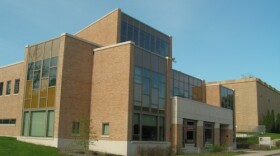Living through the COVID-19 pandemic has interrupted the certainty that many of us enjoy during more "normal" times. What I'm thinking about today is the fact that certainty and the ability to be "planful" is a privilege that most humans in the world do not have, at any time.
I’ve enjoyed a relatively high degree of certainty for most of my life, as have most people I know. That means that we know (or at least we believe we know) where we’ll be and what we’ll be doing tomorrow, next week, next month, and perhaps even in approaching years. We spend a lot of time planning what we’ll do, how we’ll structure our time, where and when we’ll travel, etc. This is consistent with what sociologists call “planfulness,” which describes a practice of goal-oriented life-planning and spending time thinking through one’s plans and actions. “Planfulness” is associated with a variety of advantageous characteristics, including earnings and other objective achievements.
Security and stability, and therefore planfulness, are first-world privileges that are possible for wealthy people in wealthy societies such as our own, but which are far less frequent in places where everyday living is more tenuous. This means that privileged people living in a wealthy, secure society have enjoyed the ability to be planful and to believe that we know what’s coming next in our lives. This has not been so for most humans for most of human history. Rather, the stability and security many of us have enjoyed is a recent phenomenon in the larger scope of human history, and is, again, a privilege for the wealthy in wealthy societies.
I’m discussing this today because understanding that the anxiety that we’ve all felt over the past year due to the pandemic is something we can use to appreciate how life is unpredictable for less advantaged people all the time, pandemic or no pandemic. I’ve been thinking about the ways in which uncertainty due to the pandemic has changed the way my family thinks, and what it would be like if our lives were more uncertain all of the time.
It’s important to recognize that the number of people experiencing uncertainty day-to-day is larger than the number who experience certainty. Understanding that our ability to be planful and to enjoy certainty is a product of class, race, and national privilege can help us to place the experiences of the past year in perspective.
Think about how often you’ve been anxious over the past year because you didn’t know what would happen – from everyday concerns such as, Will my children be able to go to school? How many computers will we need for us all to be online? Will the internet connectivity be enough? – to more fundamental uncertainties such as, Can I go to work? Will I get paid? Can I visit my mother in the nursing home? Does my partner have COVID? Will we get a stimulus check or unemployment? How will we pay the rent?
Understanding that most people around the world experience uncertainty day-to-day, year-to-year can help us to come out of this pandemic with a greater understanding of others who don’t share our privileged positions. It sounds strange to say that we can appreciate anything that comes from the pandemic, and I am in no way suggesting that people have not suffered – they have suffered terribly, and continue to do so. The fall-out from the pandemic will always be with us, and those who are less-advantaged will suffer more short- and long-term than those at the top of social hierarchies.
But we can learn from our experiences. I encourage you to think about what it would be like if you weren’t waiting for the end of the pandemic so that your life can “go back to normal.” What if the state of uncertainty was a constant for your life – your “new normal”? How would you plan and live differently? Could you understand other people differently, especially people who aren’t not like you in terms of race, ethnicity, social class, and nationality?
I encourage you to appreciate that the ability to be planful is a privilege, one conferred by membership in higher social classes, dominant racial groups, and residence in the most powerful nation in the world. Recognize that, while some of us may go back to a state of relative stability and predictability in the future, others will not.
What would enable more Americans to be planful? To enjoy more certainty?
The more equally power and resources are distributed across a population, the more people in that population live with certainty and stability. And, a stable society in which more people are afforded the dignity of planfulness is beneficial to all within that society.
The social distances between the more-privileged and the less-privileged are fluid – they can be changed by social policies that create more equity in opportunity and resources. These types of changes begin with all of us recognizing that planfulness is a privilege.
Lora Ebert Wallace is a Professor of Sociology at Western Illinois University.
The opinions expressed are not necessarily those of the university or Tri States Public Radio.
Diverse viewpoints are welcomed and encouraged.



